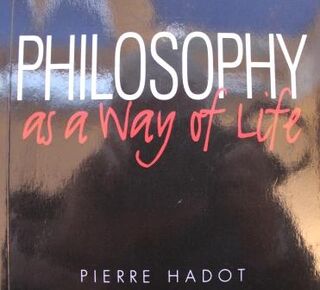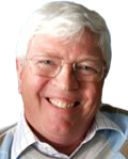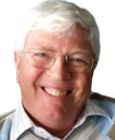
Most people want to be heroes. Isn't that true? At least when we're young and innocent. Later we realize how difficult that would be, given that we don't seem to have any super-powers, but the philosophers of ancient Greece and Rome had other ideas, insisting that each person could be the hero of his or her own life. What do you think about that?
During the current pandemic, we have become accustomed to thinking of health and social care workers, teachers, postmen and women, local authority workers, and many others as heroes. In my book, that includes pretty much everyone who has managed to comply with lockdown measures, social distancing rules, and so on, finding ways simply to keep going without giving in to fear and frustration or despair, especially those who—on top of everything—make it their business to help others by offering both practical help and emotional support.
All this chimes in with what the philosophical Roman Emperor, Marcus Aurelius, once said—that, "We must love other people with all our hearts, for rational beings are not only parts of the same whole, but limbs of the same body," a sentiment that seems to me to be the essence of wisdom. (The word 'philosophy,' by the way, translates as 'lover of wisdom.') Professor Pierre Hadot (1922-2010), in his book Philosophy as a Way of Life, wrote that all the Hellenic schools (including those of Plato, Socrates, the Stoics, and the Epicureans), "Believed in the freedom of the will, thanks to which men (and women) have the possibility to modify, improve, and realize themselves," and that, "In order to recognize wisdom, we must, so to speak, go into training for wisdom."

These Greek wizards recommended and taught what we might today call 'wisdom practices.' Hadot uses the term 'spiritual exercises,' explaining, "By means of them, the individual raises himself up to the life of the objective Spirit; that is to say, he re-places himself within the perspective of the Whole." Later, by way of explanation, he adds, "All spiritual exercises are, fundamentally, a return to the self, in which the self is liberated from the state of alienation into which it has been plunged by worries, passions, and desires..."
Another helpful thing Hadot had to say was, "'The practice of spiritual exercises implied a complete reversal of received ideas: one was to renounce the false values of wealth, honours, and pleasures, and turn towards the true values of virtue, contemplation, a simple life-style, and the simple happiness of existing." Here indeed is food for thought in times like these.
But, what are these wisdom practices that promise to help us be who we truly want to be, the heroes of our own lives? The first is fairly simple: learning to pay attention; which also, of course, means learning the skill of being quiet and still in body and mind. This, in turn, will help us acquire and deploy the second important skill of 'contemplation,' of being able to reflect dispassionately on what's happening, both outside, in the world, and inside, in the inner world of our own thoughts, emotions, sense perceptions and impulses to action. "The secret of joy and serenity is to live each instant as if it were the last, but also the first," Hadot writes, acknowledging that by doing so we free ourselves from all past regrets and future worries. "By becoming conscious of one single instant of our lives, one single beat of our hearts," he continues, "We can feel ourselves linked to the entire immensity of the cosmos, and to the wondrous fact of the world's existence."
It all sounds rather grand, doesn't it? Almost too good to be true. But all those who have tried say that, with patience and perseverance, it works for them, and they encourage others to make the great experiment for ourselves, undertaking these and other practices, such as studying wisdom literature, keeping a journal of our most personal thoughts, engaging with nature, and committing ourselves to acts of service, kindness, and compassion. Change for the better may arrive only gradually, and the road is not always smooth, but stick at it and we can expect with confidence to discover eventually the true blessings of what Hadot calls, "A consciousness of inner freedom." We may even find out that we do have special gifts and talents, our own personal super-powers, after all.
Difficult times, in which great amounts of suffering are felt and shared by many people, do seem to bring out the best in the best of us, don't you think? Hadot and the ancient Greeks agree. "To be sure, there may only be a small number of such people; they are like embers of wisdom kept smouldering in our cities, so that virtue may not altogether be snuffed out and disappear from our race. But if only people everywhere felt the same way... and became as nature meant them to be... lovers of wisdom... then our cities would be brimful of happiness." Happiness in the face of suffering! Who wouldn't want to be part of that?
Copyright Larry Culliford.
My new title, The Big Book of Wisdom, was published by Hero Press on March 19, 2020. See my website for more information about this and my other influential publications.
I support the World Wide Wave of Wisdom. I gave the inaugural SpIRE Library Lecture in Dublin on March 5, 2020. You can listen to it here (48 min) or read it here.
Watch me on YouTube in three short videos on psychology and spirituality.




